
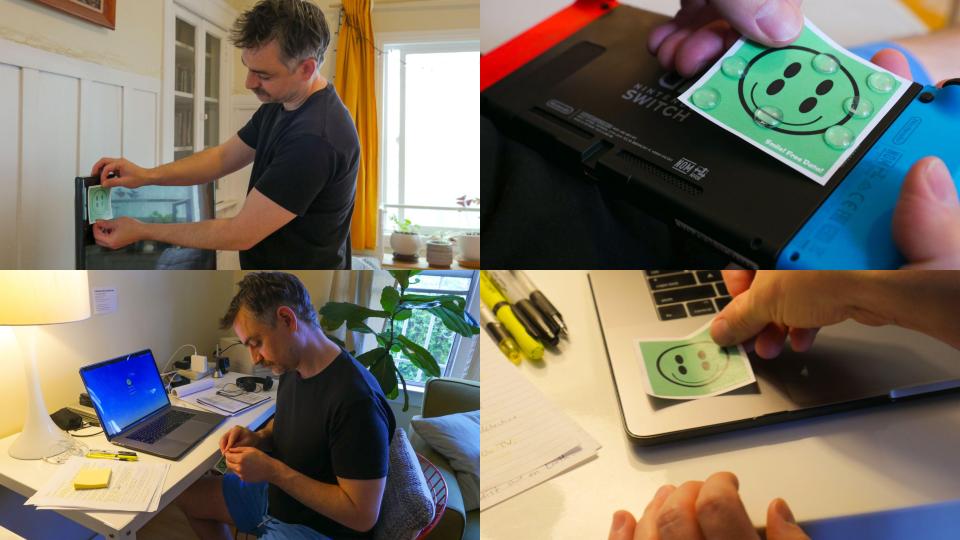
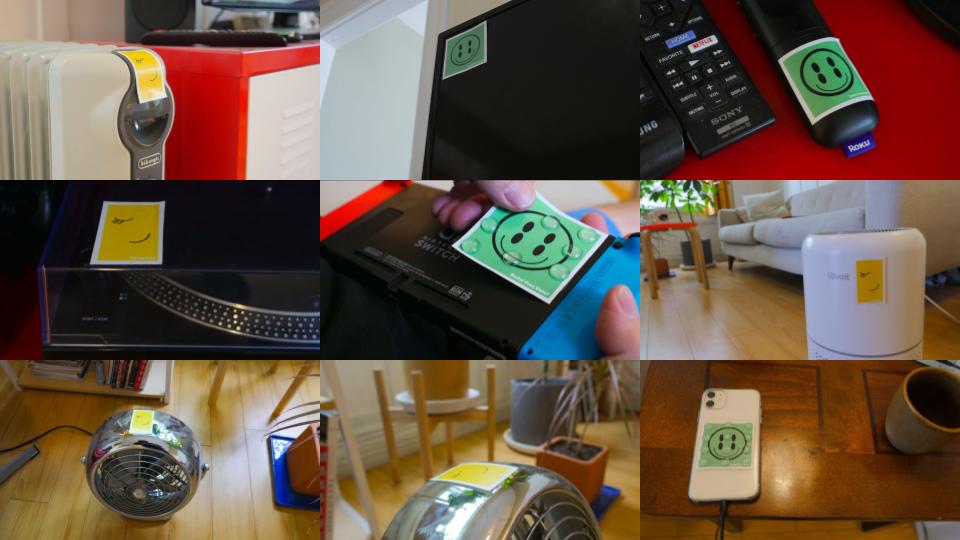
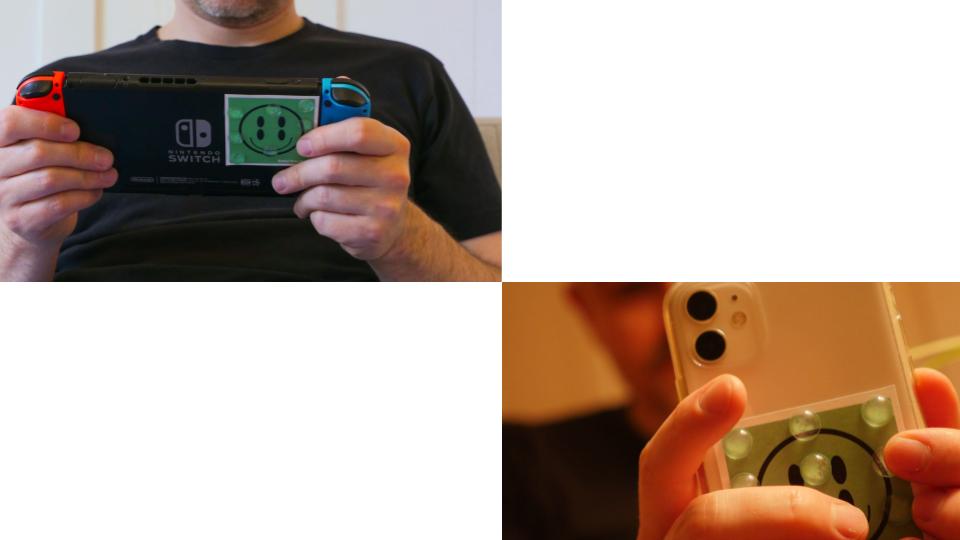
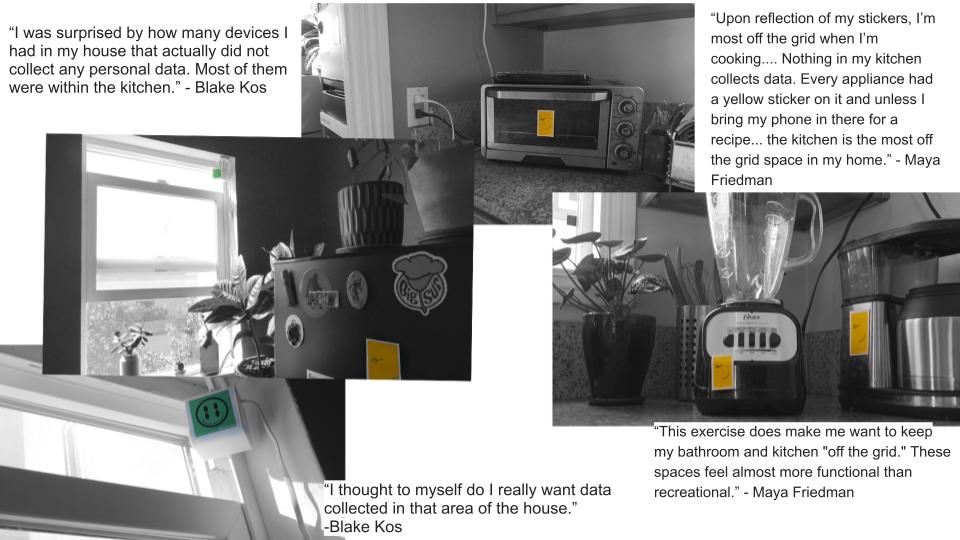 Software: Photoshop
Software: Photoshop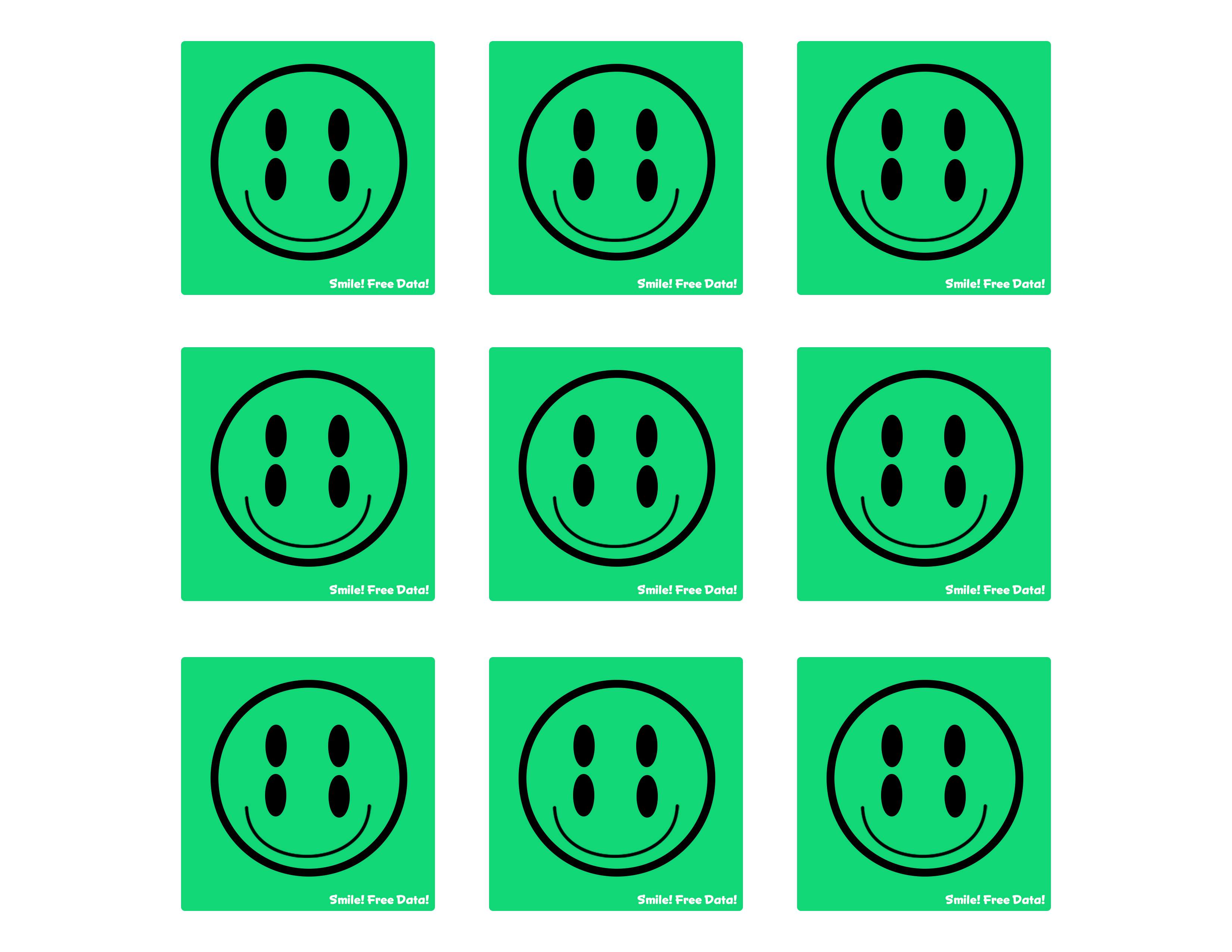

That moment when you label ubiquitous data miners to stay aware of them, and you also label electrical technology that doesn’t mine data, resulting in the discovery of spaces where you’re not giving away free data and are considered “off the grid.”
Project Discription :
Off the Grid is a game delivered as a sticker kit. The intention behind the game is to invert everyday ubiquitous data mining by attaching green stickers to data collectors. Data mining is a process of extracting and discovering patterns in large data sets involving methods at the intersection of machine learning, statistics, and database systems. Assigning a “scarlet letter” to the tech will help in demonstrating how often the participant shares through mobile devices, credit cards, gps, home devices, smart cars, living in smart cities/homes, etc. It will also help the user stay aware of what, where, and when each device is mining in their home.
The yellow stickers are intended to identify electronic technology that do not mine data and spaces where your data is safe. This way the user can potentially create a space in their home where the purpose is to be “off the grid” by staying away from data minors. As such the user is given back their right to choose where and when they want to share data, since it’s hard to get around in modernity. If the user decides to bring a phone into an “off the grid” space the use is consciously making the decision to share data.
The intention behind the game is to create a sense of data ownership for the user. It’s also intended to identify spaces in the home where you are actively sharing data, and spaces in the home that are mostly if not totally off the grid. Through my research I found that if a space is close to being off the grid in the user's home they can easily remove the single or few items that mine data. Creating a safe off the grid space in their home is intended to give them a sense of time off of the screen and away from sharing data.
Project Discription :
Off the Grid is a game delivered as a sticker kit. The intention behind the game is to invert everyday ubiquitous data mining by attaching green stickers to data collectors. Data mining is a process of extracting and discovering patterns in large data sets involving methods at the intersection of machine learning, statistics, and database systems. Assigning a “scarlet letter” to the tech will help in demonstrating how often the participant shares through mobile devices, credit cards, gps, home devices, smart cars, living in smart cities/homes, etc. It will also help the user stay aware of what, where, and when each device is mining in their home.
The yellow stickers are intended to identify electronic technology that do not mine data and spaces where your data is safe. This way the user can potentially create a space in their home where the purpose is to be “off the grid” by staying away from data minors. As such the user is given back their right to choose where and when they want to share data, since it’s hard to get around in modernity. If the user decides to bring a phone into an “off the grid” space the use is consciously making the decision to share data.
The intention behind the game is to create a sense of data ownership for the user. It’s also intended to identify spaces in the home where you are actively sharing data, and spaces in the home that are mostly if not totally off the grid. Through my research I found that if a space is close to being off the grid in the user's home they can easily remove the single or few items that mine data. Creating a safe off the grid space in their home is intended to give them a sense of time off of the screen and away from sharing data.
Class Brief:
We will consider what “technology” is; explore ideas of prototyping in and with publics; and critically reflect on the resulting implications. Emphasis will be placed on what is being instigated and considered by the design propositions each student puts forward for an individual, community or public to engage with.
Project (including in-progress) critique will drive general discussion of terms, considerations, and the specifics of form as embodiment of idea. Discussions will include both the possibilities and limitations of each student’s propositions as well as how the material and experiential choices embody the intent.
This class is intentionally designed to put students in the field, and to foreground a design and concepting methodology that is completely responsive and iterative. Assignments are not shared until they are assigned - this is by design, because our focus is on learning how to develop and re-develop ideas through on-the-ground observation and prototyping. We will practice generating ideas from OBSERVATION, not from preconceived notions or assumptions about people/situations/technology/
etc.
We will consider what “technology” is; explore ideas of prototyping in and with publics; and critically reflect on the resulting implications. Emphasis will be placed on what is being instigated and considered by the design propositions each student puts forward for an individual, community or public to engage with.
Project (including in-progress) critique will drive general discussion of terms, considerations, and the specifics of form as embodiment of idea. Discussions will include both the possibilities and limitations of each student’s propositions as well as how the material and experiential choices embody the intent.
This class is intentionally designed to put students in the field, and to foreground a design and concepting methodology that is completely responsive and iterative. Assignments are not shared until they are assigned - this is by design, because our focus is on learning how to develop and re-develop ideas through on-the-ground observation and prototyping. We will practice generating ideas from OBSERVATION, not from preconceived notions or assumptions about people/situations/technology/
etc.